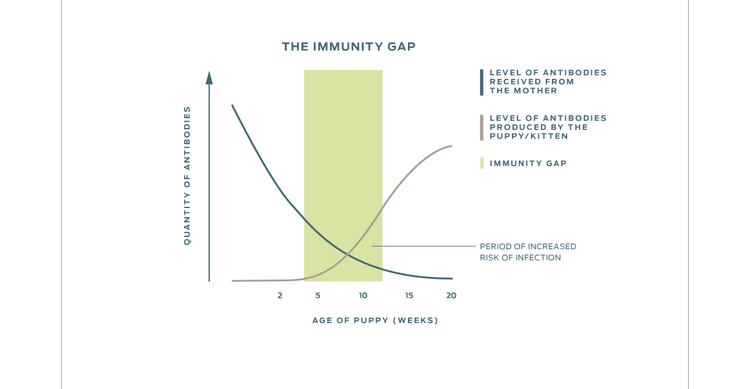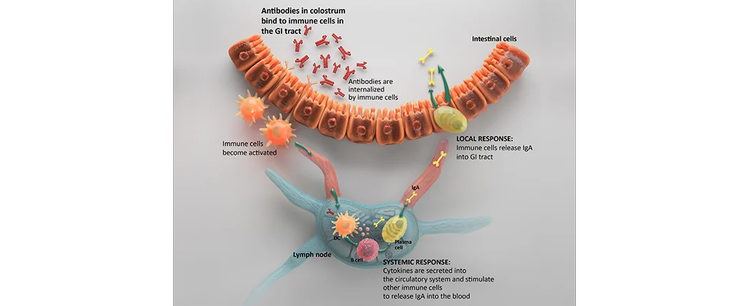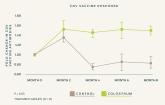
COLOSTRUM

70% of all immune cells are located in the gut.1
These cells protect the body from invading pathogens and support the overall good health of the pet. Supporting gut health is critical for puppies and kittens when their immune systems are still maturing, and there are also benefits for adult pets.

COLOSTRUM
Supporting the developing immune system
Multiple factors can impact the immune system including genetics, lifestage, nutrition and external stressors. Newborns absorb antibodies from their mother’s first milk, colostrum, which is well known to offer immune protection. However, this adopted maternal immunity declines over time, creating a potential gap in protection while the puppy’s or kitten’s own immune system is still maturing. This is known as the immunity gap.

Nutritional supplementation may help bridge this gap to provide protection against disease during this critical period of development.
Antibodies in colostrum interact with immune cells in the gut and initiate a beneficial immune response.

Purina's research


A Purina study showed kittens fed a diet supplemented with bovine colostrum bioactives had a quicker and stronger response to the rabies vaccination with a 50% increase in antibody levels.2
Supporting the adult immune system

Colostrum can be beneficial in adult pets, too. Purina research showed that feeding the bioactives and antibodies found in bovine colostrum provided benefits in adult dogs, who showed both a stronger and longer response to canine distemper virus (CDV) vaccination, with a 50% increase in antibody levels after 6 months.3
Key things to remember
- 70% of all immune cells are located in the gut, where they protect the body from invading pathogens and support overall health.
- Puppies and kittens are born with immature immune systems. When the immunity derived from their mother’s milk wanes, there may be a gap in immune protection. Nutritional supplementation may be able to bridge this gap.
- Purina research found that kittens fed a diet with bovine colostrum had a quicker and stronger response to rabies vaccination along with an increase in antibody levels.
- Purina research found that adult dogs fed a diet with colostrum also demonstrated a stronger and longer immune response to canine distemper virus vaccination, with a 50% increase in antibody levels after 6 months.
Find out more
1. Vighi, G., Marcucci, F., Sensi, L., Di Cara, G., & Frati, F. (2008). Allergy and the gastrointestinal system. Clinical and Experimental Immunology, 153(S1), 3–6. doi: 10.1111/j.1365-2249.2008.03713.x
2. Jean-Philippe, C. Beneficial effects of dietary colostrum supplementation in kittens, Nestlé Purina Scientific Update of Feline Nutrition, Issue 4, 1–8.
3. Satyaraj, E., Reynolds, A., Pelker, R., Labuda, J., Zhang, P., & Sun, P. (2013). Supplementation of diets with bovine colostrum influences immune function in dogs. British Journal of Nutrition, 110(12), 2216–2221. doi: 10.1017/S000711451300175X